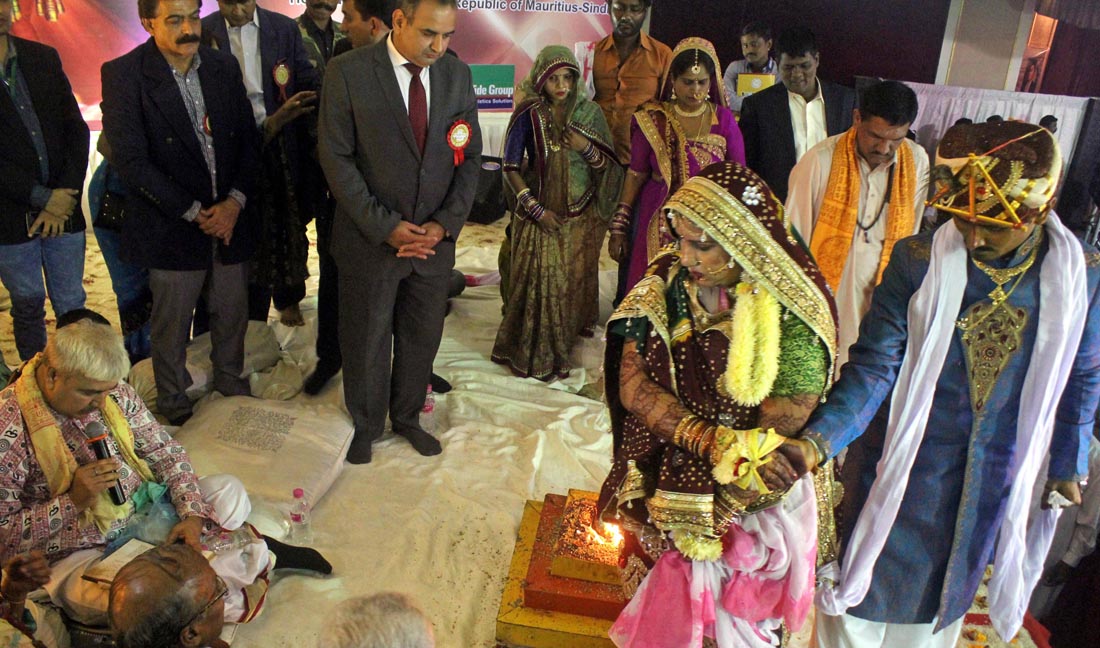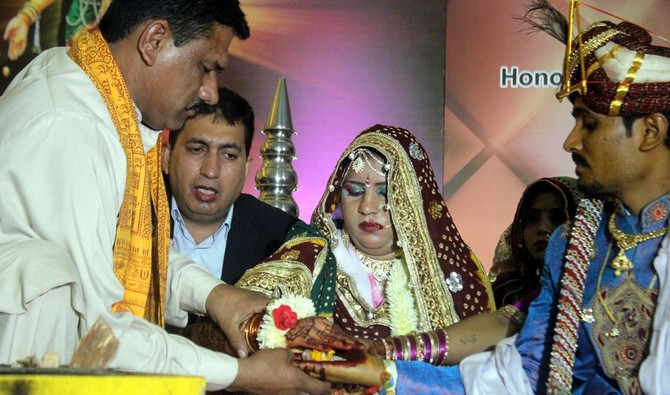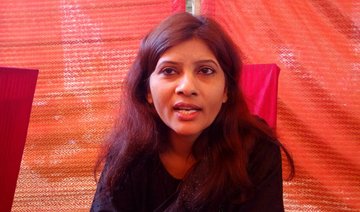KARACHI: The husband of Lakshmi, a Hindu teenager from the town of Diplo in Sindh, died in February. She is due to give birth in about two months, making hers a two-member family.
Lakshmi’s story, however, is far from unusual among Hindu widows in the southeastern province of Sindh. Her maternal aunt, Sohni, who died last year in March, spent 32 years with her two children after her husband died in 1985.
Lakshmi, though only 19, was already familiar with the realities facing women in her community.
“Our fate lies in the hands of our men, who have decided that a widow doesn’t deserve a married life,” Lakshmi told Arab News.
“There are thousands of Hindu widows who are facing such a painful situation,” said Nand Kumar Goklani, a provincial lawmaker.
Life for these women appeared bleak until last Saturday when the Sindh provincial assembly adopted the Sindh Hindu Marriage Act, 2016 (Amendment) Bill, 2018 into law.
“When the Sindh governor grants his assent in the next couple of days, the law aiming to protect women and put an end to this injustice will come into effect,” Nand Kumar Goklani, a provincial assembly member from the Pakistan Muslim League (Functional) and mover of the bill, told Arab News.
According to a 2017 census, Hindus make up 1.85 percent of the Pakistani population and a large number (93.33 percent) live in Sindh.
“The objective of this Act is to address the issues relating to Hindu marriages,” reads the act, which also gives either party to a Hindu marriage the right to present a petition to the court seeking a judicial separation.

This file photo shows a Hindu wedding ceremony in progress in Karachi where couples from across the Sindh province gathered for a mass Hindu wedding on Jan. 29, 2018. (AN Photo)
When a marriage has been ended by a decree, either party can marry again after six months have expired, according to the bill.
The bill also gives Hindu widows the right to remarry.
“A Hindu widow shall have right to remarry of her own will and consent after the death of her husband provided a period of six months has lapsed after the husband’s death,” the bill says.
The bill also seeks to safeguard the financial welfare of wives and children, and sets penalties for those breaching its requirements.
Goklani said the legal change will benefit the Hindu community. “Most Hindu people are living in Sindh, so the responsibility of the Sindh government should be to give Hindu people living in Sindh access to basic rights that make their family life more comfortable and protected.”
In the past few years, matrimonial issues have been growing in the Hindu community, especially in Sindh, according to Goklani.
The rights of woman, children and their livelihood were too often ignored, he said.
In Karachi, Parkash, a manager at a private company, said that widows are now encouraged to remarry.
“Daya, the husband of my cousin Lata, who is 20, died two years ago in a road accident,” he said. “We remarried her after six months.”
For Hindus living in Karachi, much has been changed. “It’s all about education and awareness,” Parkash said.
Goklani said a “mass awareness drive” will be implemented to promote understanding of the legal change.
When told about the new law, Lakshmi told Arab News: “If it has really happened then it’s a day of Diwali for me.
“It will give me a second life because as a Hindu widow, you’re a living corpse.”






























